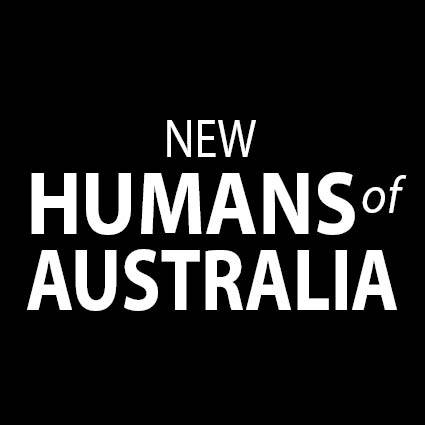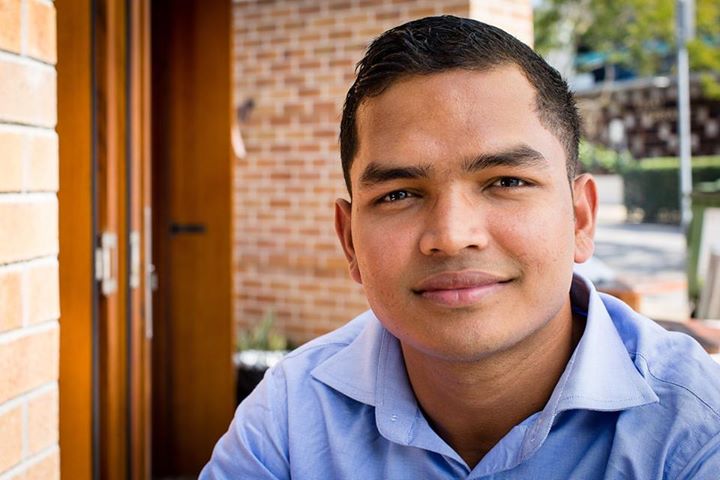When I was only six months old, we fled Burma to Bangladesh because of the violence towards the Rohingyans, crossing the border through the jungles along with 280 000 other people. At first, we had to take shelter under a tree in the open sky. There were thousands and thousands of families along the streets, all trying to register with the UNHCR at the same time, but eventually, we were processed and put in a refugee camp.
My family had 10 people, and we all had to live in one very tiny room in a bamboo shed with a plastic roof, sleeping 5 to a mat, all side by side. I grew up living like that, with no space, and no electricity, just one small kerosene lamp. Our food was dahl, rice, sugar and salt, but it was a very minimal amount of food, and it was never enough.
I spent my whole life in that camp until I turned 18. We only had school up to year 5, and after that, I had nothing to do. I eventually went to the UNHCR and asked them, ‘Well, what can I do now? I’m not allowed to go out and we are in a very tough situation,’ and they said, ‘OK, how about you become a teacher?’ So I did some teacher training for about a year and a half and then I became a primary school and literacy teacher in the camp when I was 16. I think that was the best part of my whole camp life – I really enjoyed it because I could see the children learning.
In 2008, after 18 years of refugee life in this camp, they finally noticed that all these people should be resettled. Only 200 people were chosen to come to Australia out of 30 000 refugees, and luckily my family was one of them. We couldn’t believe it. Some of my friends joked that the reason we were chosen was because I was such a big fan of Australian cricket!
When we first arrived, I studied English again, then I did a tertiary preparation course, which was very challenging because of my lack of schooling. But eventually I was accepted to do a degree in Human Services. Since childhood, I had always wanted to become a UNHCR officer working with refugees because I used to see them coming and helping in our camp and I appreciated their work so much.
After one semester, I got an offer to do an interpreting job for the Department of Immigration and Border Protection in the detention centres, and although I didn’t want to leave my studies, I knew that if I got this job I would be able to support my family. Three years later, I got a new job, as a Cultural Advisor in the detention centres, working with Rohingyan and Bengali clients. I spend a lot of time just talking to them, because they’ve been living in a very tough condition for a long time and when they see someone from their own culture, speaking their own language and listening to them, it means a lot to them.
I hope to return to my studies soon. Recently, I bought my own house, which has always been my dream. This was not just my first house in Australia but my first house anywhere, ever. Next week, my whole family and I will move in. It’s not a big house, but I am very happy.
The only thing that is making me sad is the news coming from Burma right now. All my extended family has recently left Burma, and now they are in Bangladesh in the same refugee centre where we once lived. One of my sisters couldn’t come to Australia with us because she was married and had children, so she has been living in that refugee camp for more than 25 years. And now there are more than 400,000 people taking shelter there – it’s chaos, and there is not enough humanitarian aid. Thousands of those families don’t have a single family member left in Burma anymore. That’s what the Burmese government wanted to do, to drive all the Rohingyan Muslims out of the country by ethnic cleansing.
I wanted to tell my story here to help raise awareness of the situation for my people. They need help – they need food and shelter, and to be resettled in other countries as soon as possible. My family didn’t have citizenship for so long, we were on the street and on the run, then living in the camp for years, but now I have a country, a job, and a house to live in.
I hope that everyone can have the opportunities that I have had.
Mohib
Arrived 2010
Burma / Myanmar
Photo by Julia Galleway. Instagram @juliagalleway
______________________________________________
The Rohingyan Muslims are currently one of the most persecuted minorities in the world. A serious crisis is taking place in Bangladesh.
You can help support the Rohingyas here: www.unrefugees.org.au/emergency-response/rohingya/
#refugees #refugeestories #migration #rohingya #rohingyamuslims #family #inspiration


Wow what a difficult story & what an inspiring person you are.
I am so happy for your success after all your hard work. Congratulations and enjoy your life in Australia ????????
It’s hard to know what to say but thankyou for sharing your story and being such an inspiration
Thank you for your story. You really show how important it is to resettle refugees (especially children) asap so they can get in with their lives.
What an inspiring story. Best wishes for your future
God bless you. I appreciate you sharing.
Welcome.. Australia is now your home .. I’m so happy you are here ❤️
What a story of hard work, persistence and eagerness yo help others. You should be very proud of your achievements.
Have you seen that Rohingya is one of the 6-7 languages SBS is adding to its radio network? Bet you’d make a great broadcaster for your community.
Very hard to imagine what you had to go through. Glad you call Australia home now.
It is very sad to see how the Rohingyan Muslims are treated in Burma, i think international community should approach Burmese government seriously to stop this brutality.
So the next time I think I’m having a tough day I’ll re-read your story!! Thank you for sharing and best of luck in your new home ????
It’s disgraceful that people must llve in refugee camps for so long. No wonder they give up on getting into a country legally and come in illegally. And not giving children a proper education is not good enough, all children deserve to be educated.
Now you can teach some Aussie kids the meaning of ‘values’ Welcome to Australia, I know you will make it a better place 🙂
We’re lucky to have you and your family, Mohib! ✊ Well done.
I can’t even begin to imagine living for so many years in a refugee camp 🙁 Thank you for sharing your story and humanising the crisis even more. I am privileged and hearing the numbers of people suffering can mean I find it hard to relate to.
Thanks for sharing your wonderful story Mohib and congratulations on your great achievements. I hope for the best for the other Rohingyans refugees who were misplaced in the past couple of weeks and I hope they get resettled soon.
Welcome to Australia. I’m so pleased you’ve been able to purchase a home, and begin to feel some connection to the land here.
Best wishes to you and your family. Good luck with your studies and your work.
Touching story. Very sad for the Rohingya people in Myanmar right now
Please do continue your studies now that you and your family are in more comfortable circumstances. It’s through education that problems are solved. I’m certain that you could continue to make a difference to people who need your support. Thank you for sharing your story with such honesty.
Sharing stories like yours and ours are needed to be told for people to hear and try to understand a different perspective than they often hear from the MSM, for the stories like these humanises us all.
Really pleased Mohib, you took the time to encourage us all with your lifelong struggle.
Thank you buddy.
Mohib you sound like a truely amazing person. Thank you for sharing your incredible story. May the atrocities and heartache in Burma cease and everybody be resettled from the camps ????
This is heartbreaking on so many levels.
These stories are priceless. Thanks for sharing them!
Good on him! What a absolutely determined human being
Well done! Though it was tough, you held on and you have made us proud. Congratulations to you for your enormous accomplishment!!